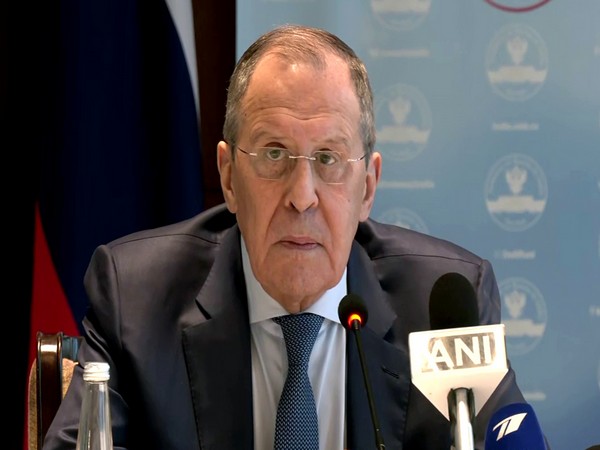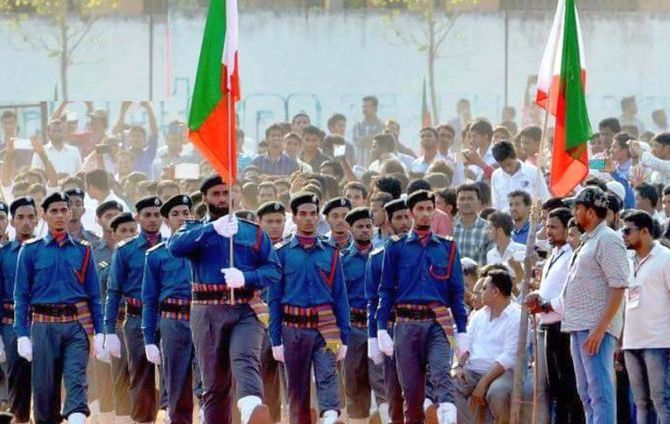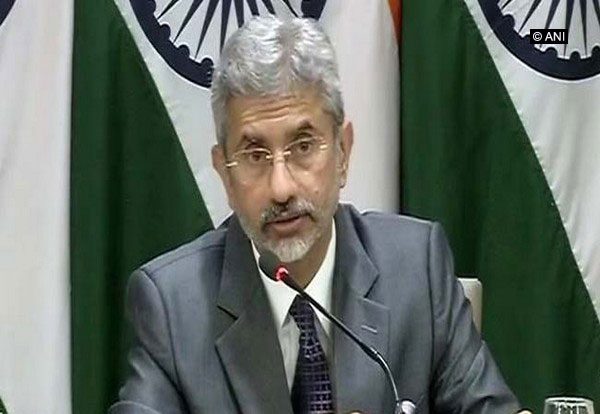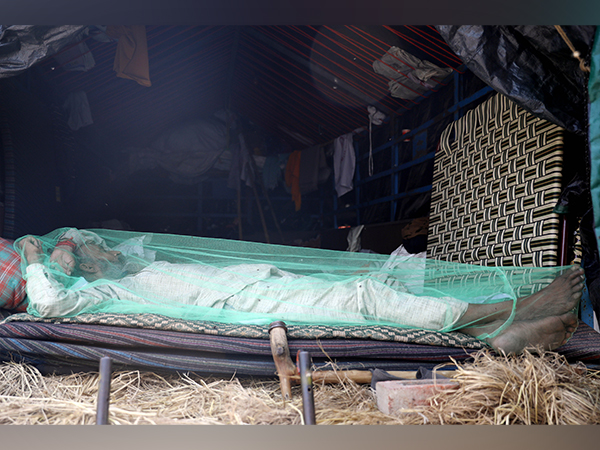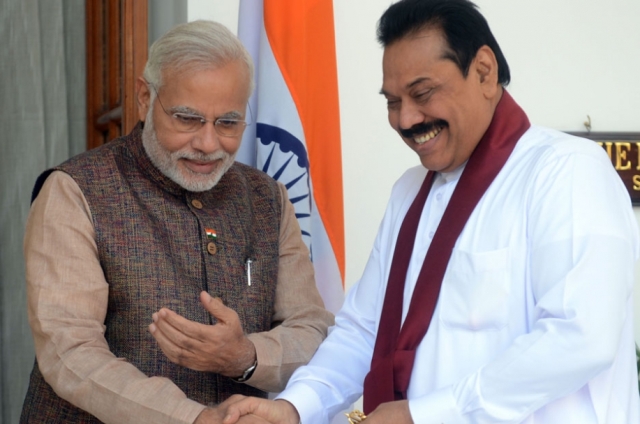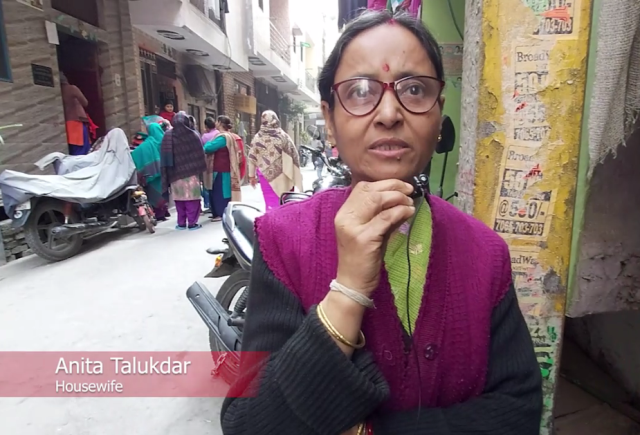Prime Minister Mahinda Rajapaksa’s visit
to India this week (February 7-11) will be an opportunity to forget past
bitterness and begin on a clean state. The former strong man will get a warm
welcome in the Capital, when he arrives in for his first official visit in his
new avatar. Delhi is as eager as the Rajapaksas to improve relations.
The emphasis will be on getting the
political relations right, considering that the Rajapaksa’s second term as President,
where he openly wooed China and gave short shrift to India, was a nightmare for
New Delhi. This was the period when Colombo allowed Chinese submarines to dock
in Colombo and allowed Beijing to spread its wings across the island nation,
despite Delhi’s security concerns.
Mahinda Rajapaksa’s supporters allege that India had a hand in his defeat in the 2015 elections. They blame the former RAW official posted in the High Commission in Colombo of organising the anti-Rajapaksa front of like-minded people from both the ruling Sri Lanka Freedom Party and the United National Party to oust Rajapaksa. Whatever be the truth of the allegations, suspicion remained. But all that is now in the past as the two sides hope to rebuild frayed ties.
The Rajapaksa brothers (President Gotabaya
and PM Mahinda as well as state defence minister Chamal) know that it is
important to have good relations with India for all ruling dispensations in
Colombo. Mahinda Rajapaksa who is the main strategist for the family, had built
his bridges with India soon after he lost power. During private visits to
India, he had made it a point to call on Prime Minister Narendra Modi. His
closeness to maverick politician Subramanian Swamy ensured access to the PM.
Though the LTTE has been wiped out, Tamil-speaking minorities in the north and east of the island, indeed even those living in Colombo, look to New Delhi for support. In the initial stages when the Liberation Tigers of Tamil Eelam began their movement against discrimination by the Sinhala-Buddhist majority, they were solidly backed by New Delhi and Tamil Nadu. So far while the Tamils have been given some of their rights, the complete devolution of power to the provinces have not yet come through. India will be urging Mahinda Rajapaksa to carry out all the provisions of the 13th amendment, which was brokered by India in the past. The Tamil National Alliance, the party of Tamil MPs has been urging the government to fulfil the promised devolution provisions.
It is unlikely that the Rajapaksa brothers, who believe in a unitary state, will be in a hurry to fully implement the 13th amendment to the Constitution. In fact President Gotabaya himself believes that rebuilding the Northern Province and bringing development to the Tamils is more important then giving them greater autonomy. `Development over devolution,’’ is what Gotabaya thinks is the need of the hour. The Tamil population which have long yearned for more meaningful devolution may not quite agree. Aware of this, New Delhi will continue to push for devolution.
India is also in the mood to ensure that
the past mistakes are not repeated because that will push Sri Lanka into
China’s waiting arms. This is at a time when PLA vessels, including warships
are increasingly plying the Indian Ocean region and developing close ties with
India’s immediate neighbours.The BJP government since 2014 has been working
towards strengthening ties with all its Indian Ocean neighbours whether it is
Mauritius, Seychelles, Sri lanka and Maldives.
New Delhi’s tough policy towards Nepal and
the decision to blockade that land-locked nation in 2015, has had severe
consequences for India. Nepal turned to China for help. The Chinese naturally
grabbed the opportunity. The Chinese are today well entrenched in neighbouring
Nepal, thanks to Prime Minister Oli’s close ties with Beijing. China is giving
India a run for its money in the Himalayan nation. India realises the dangers of
China’s presence in its immediate neighbourhood, and is hoping to counter the
dragon in its periphery. This means wooing the neighbours, and ensuring that
Indian interests in the region are protected.
South Block is no mood to give more space
to China in its immediate neighbourhood. And with China investing massively in
Sri Lanka, from the Humbantota Port, to modernising the Colombo port and
building the USD 1.4 billion port city in the capital, which would house an
International Financial Centre. Delhi has no time to waste.
India has also stepped up its efforts. In
fact, the move to woo the Rajapaksa brothers began with foreign minister S Jaishankar
rushing to Colombo soon after Gotabaya’s election victory, inviting him to
visit and reassuring him that Delhi was ready to do business with the new
regime. Gotabaya helped matters by announcing that Sri Lanka’s foreign policy
would be neutral as the island had no wish to get involved in the rivalry
between the two Asian powers. Gotabaya came to India soon afterwards in November
2019, and had meaningful conversations with Prime Minister Narendra Modi and
other Indian leaders. India announced a credit of $400 million to boost
development and a further $50 million for security. Sri Lanka lost 250 people after
the Easter bombings. Anti-terror cooperation is high on the list of bilateral
ties now. In fact, Indian intelligence had warned their Lankan counter part of
a possible terror attack. But the squabbling coalition of Sirisena and Ranil
Wickremasinghe did not act on the information.
Apart from the ongoing project of building
50,000 house in the war torn Northern Province, announced in 2010, India and
Japan are joining hands to build a deep sea Container Terminal in Colombo port.
This was announced in 2019. India will also work towards refurbishing the
Trincomalee oil farm in the Eastern province.
At one time, decades back, India was worried about US eyeing the oil
tank project in Trincomalee. Now though India has been working at refurbishing
some of the old tanks. Sri Lanka has leased out the oil tanks to India, to
jointly operate a strategic oil facility. This is not a new project but the
Modi government now is paying much more attention and will take up the work in
earnest. This will help in the integrated development of Trincomolee and the
entire Eastern province. Trincomalee is strategically located in the eastern
side of Sri Lanka and in the heart of the Indian Ocean. According to reports
from Colombo the US is also eyeing Trincomalee port, perhaps to checkmate
China’s presence in Humbantota further south of the island.
Keeping all this in mind, Mahinda Rajapaksa’s visit this weekend is important. Last month China’s foreign minister Wang Yi was in Colombo on an official visit. China will continue to be an important partner of Sri Lanka. Considering that Beijing has the money power to back it, no developing nation wants to close the door to China. So despite criticising Mahinda Rajapaksa for giving a free reign to China, the India-friendly government of Maithripala Sirisena and Ranil Wickeremasinghe, allowed China to continue the projects it had signed with the previous government. So South Asian neighbours will benefit from the India-China rivalry playing out in the region.
Though China’s cheque book diplomacy works wonders, people to people contacts are much better with India. Buddhism is a strong link and Sri Lankans, including Prime Minister Mahinda Rajapaksa does not miss an opportunity to visit the holy sites in India. He will be visiting Sarnath as well as Bodh Gaya during this trip. The religious and cultural bonds are India’s strong points. All this will come into play as India hopes to contain China in its neighbourhood.
